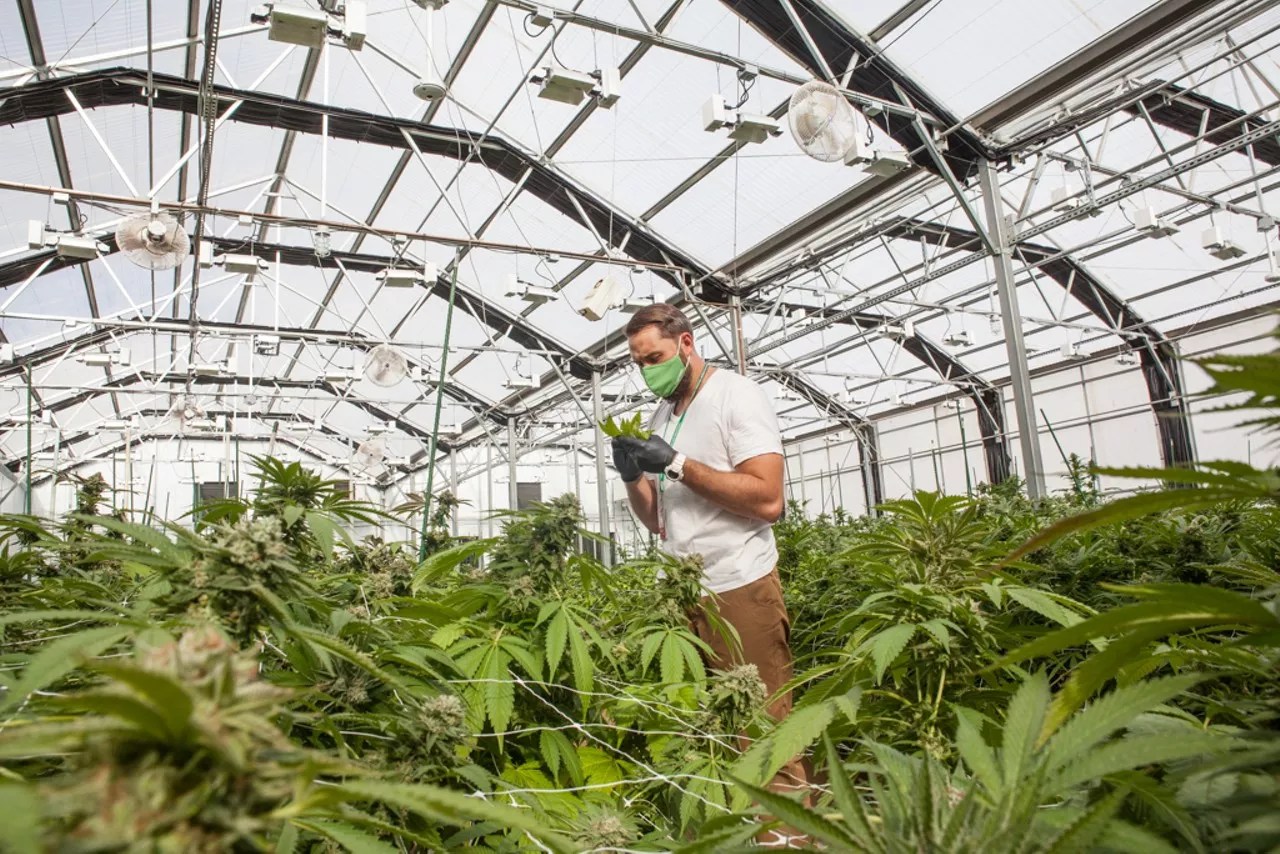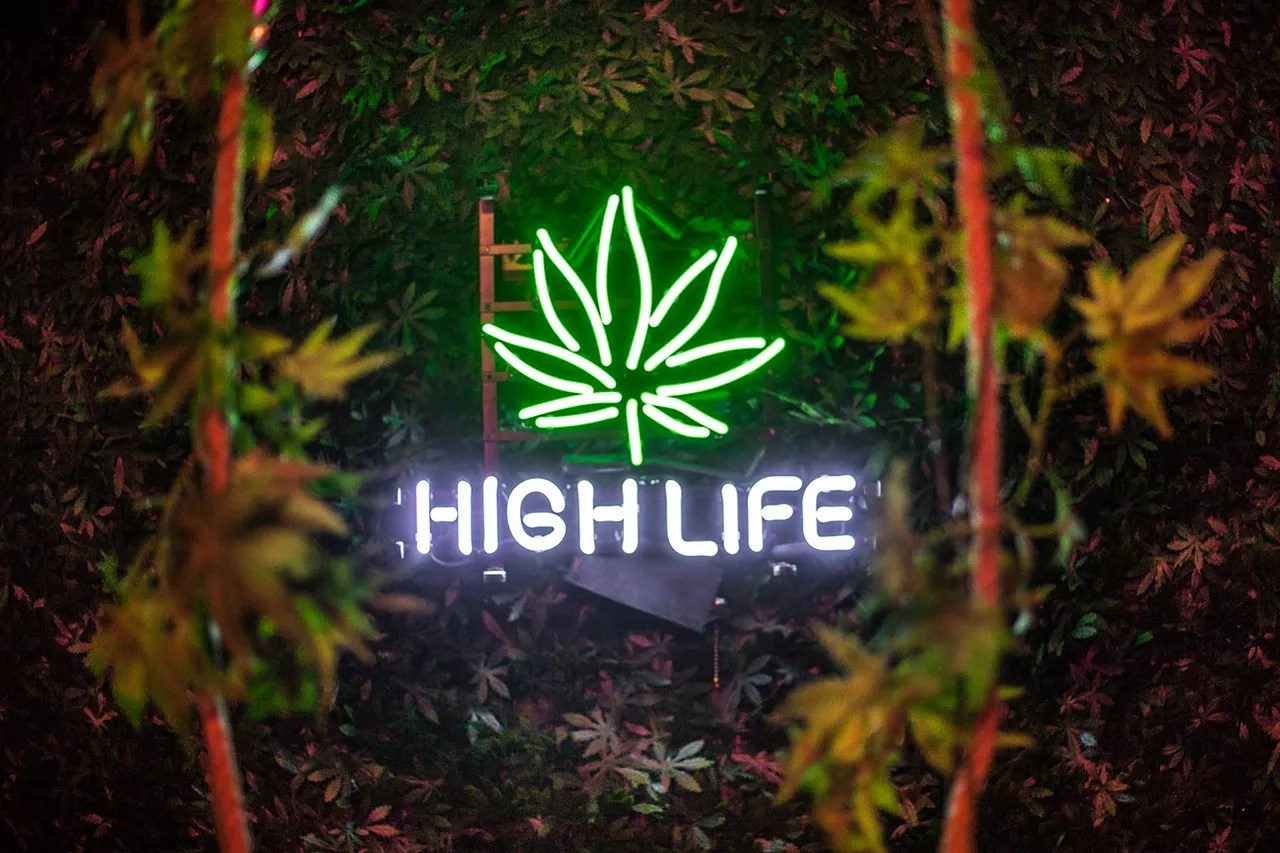
Jacqueline Collins

Audio By Carbonatix
While other businesses have suffered through the pandemic this year, one industry is smokin’: Colorado’s cannabis sales have never been better.
That was just one of the developments that made our list of the biggest marijuana stories in the state in 2020. Here are the top ten:
R.I.P., Charlotte Figi
Charlotte Figi became a catalyst for medical marijuana around the globe in 2013, when she appeared on Dr. Sanjay Gupta’s Weed documentary on CNN. Gupta had doubted medical marijuana’s efficacy until he met Figi, a toddler who suffered from Dravet syndrome, a rare form of epilepsy that can cause extreme seizures. Figi was treated with CBD oil extracted from a non-intoxicating strain of marijuana in 2012, and eventually no longer required a feeding tube to eat; her family reported that CBD nearly eliminated her seizures. The growers of the strain of high-CBD marijuana she used later named the strain Charlotte’s Web and their company CW Hemp in her honor. Other patients moved to Colorado for the same treatment, helping to create the phrase “medical marijuana refugee.”
Unfortunately, Figi was among those at higher risk during the pandemic. In March she was hospitalized because of what her family believed were complications from COVID-19; her mother soon announced that Charlotte had passed away at the age of thirteen. Just over two weeks after Figi’s death, Governor Jared Polis issued an executive order proclaiming that April 7 will forever be known as Charlotte Figi Day in Colorado.
Denver’s Two-Hour “Prohibition”
Where were you during Denver’s almost-prohibition? As part of a citywide stay-at-home order to limit the spread of coronavirus, Mayor Michael Hancock’s administration announced on March 23 that recreational dispensaries and liquor stores would be among the businesses that would close that day. The move, intended to prevent large gatherings of people, immediately did the opposite, with swarms of panicking Denverites lining up at pot shops and liquor stores before the 5 p.m. shutdown.
Hancock clarified his order within hours, but it was too late to stop the rush: Dispensary sales shot up 392 percent from noon to 4 p.m. on March 23, almost quadrupling the average afternoon sales rate for a Monday in 2020. Now dispensaries and liquor stores are both considered essential businesses across the state: The people have spoken.
Legal Weed Becomes Pandemic-Proof
As the world burns, legal weed grows…and grows. After some short, shaky periods of fighting for their status as essential businesses during the beginning of the pandemic, dispensaries have been selling weed almost as fast as it can be trimmed. In Colorado alone, pot shops sold well over $1.5 billion worth of marijuana products after March as the state and local governments began issuing public-health orders related to the COVID-19 pandemic; dispensaries in other states report similar sales increases.
Expungement
The first state to legalize recreational marijuana in the country, Colorado has been criticized for doing little to repair harms done by the War on Drugs, while states newer to retail pot have included marijuana expungement in their legal-marijuana language. However, the Colorado Legislature began to correct course when it approved a bill that gives the governor the right to expunge low-level marijuana possession crimes (on the last day of the 2020 session, no less).
Governor Jared Polis used that executive authority to automatically pardon 2,732 low-level marijuana possession convictions on October 1. While he had the power to pardon possession convictions for up to two ounces of marijuana, and the pardons he issued only applied to convictions handed down in state, not municipal, courts, at least they were a start – one that criminal-justice reform advocates hope to continue building on next year.

Despite a slow start to 2020, Colorado’s pot landscape reached new heights.
Jacqueline Collins
Thirsty Budgets
More Colorado towns still ban pot businesses than allow them, but that trend started to shift as local budgets dried up in the face of COVID-19. Those budget cuts inspired over a dozen Colorado towns and counties to consider marijuana measures on their November ballots. After the votes were tallied, over eight new communities had joined the recreational pot trade, including Lakewood, Littleton, Broomfield, Fort Lupton and Buena Vista, while Winter Park voters approved a recreational pot sales tax, opening the door for future dispensaries in the popular ski town.
In 2020, however, Colorado Springs rejected allowing medical marijuana delivery and recreational pot sales (again), and remains the marijuana industry’s great white whale in Colorado.
Delivery and Social Consumption’s Slow Start
Cities already allowing marijuana sales also started to consider marijuana delivery and hospitality, two new, fun forms of weed businesses made legal in 2020. Boulder, Longmont and Superior all approved medical marijuana delivery (but not recreational), and in late December, the Aurora City Council approved recreational pot delivery, which could start as soon as January 2021.
Although the pandemic undoubtedly (and rightfully) slowed social consumption’s progression, at least two towns, Dillon and Glendale, opted into hospitality, as did unincorporated Adams County. Denver didn’t approve delivery or update its ill-conceived hospitality program this year, but a city advisory board recommended doing both, with Denver City Council expected to vote on the issues in 2021. At least slow motion is better than no motion.
Diversity Calls
With marijuana business ownership predominantly white, the broader issue of social equity in Colorado cannabis has been simmering for several years, and 2020 actually saw some accomplishment. The same bill that cleared old marijuana possession charges also created a definition for social equity marijuana license applicants in Colorado. To qualify, an applicant must prove that they or their families were negatively impacted by the War on Drugs, earn less than 50 percent of the state median income, or come from a community designated as a low-economic opportunity zone by the state Office of Economic Development and International Trade. Since the definition was created, Aurora has adopted it into that city’s marijuana delivery ordinance, reserving delivery licenses for social equity applicants for the next three years and slashing the costs of licensing fees. Denver is likely to implement social equity licensing measures, as well.
CBD’s Honeymoon Ending
Still benefiting from the glow of federal legalization and a growing base of curious CBD customers, industrial hemp farming boomed in 2019. The industry’s growth continued into 2020, but the success stories weren’t as abundant, as a spurt of new farmers – many of whom are located in Colorado – led to oversupplies of hemp and CBD, which in turn resulted in plummeting wholesale prices. With the majority of new hemp farmers growing the plant for CBD extraction and not fiber use, prices for unrefined CBD dropped as much as 83 percent from 2015 to 2020, while nationwide acreage devoted to hemp farming more than doubled.
That doesn’t mean that hemp or hemp-derived cannabinoids are going to be a bust, though. Lesser-known cannabinoids with their own potential health benefits, such as CBG, CBN and CBC, have emerged as new revenue streams for the hemp industry, and growing the plant for industrial uses such as fiber, bioplastics and supplemental food has proven to be a more sustainable end game for hemp farmers. So what happens in 2021? In the immortal words of Wu-Tang Financial: Diversify.
Corporate Cannabis
Colorado’s marijuana industry was already trending toward consolidation before 2020, with fifty companies responsible for over 54 percent of the state’s market share in 2019, according to the Colorado Marijuana Enforcement Division. At the beginning of the COVID-19 pandemic, there was some question as to whether that trend would continue, as several big acquisitions were put on hold or terminated entirely – but that didn’t last for long.
A 2019 agreement for the acquisition of the state’s largest dispensary chain, the Green Solution, was finalized in September, while other pot giants like LivWell Enlightened Health, Native Roots and Green Dragon all opened stores or bought other operations, and new players such as Igadi and Slang Worldwide emerged as cannabis conglomerates in Colorado. Slang, an owner of several popular pot brands like Cookies and O.penVape, even received tax incentives from the state as part of an agreement to expand operations and jobs in Colorado – a first for the marijuana industry.
Trimming the Eco-Fat
Largely produced indoors, Colorado weed was responsible for 3,650 tons (7.3 million pounds) of marijuana plant waste in 2019 – an amount that would be increased to 7,300 tons by a requirement that unused plant matter and product be mixed with other waste to discourage any attempts at reuse. And then there’s the amount of electricity required to run hundreds of indoor marijuana grows, as well as emissions from pot production facilities. In 2020, though, lawmakers and industry watchdogs started dealing with pot’s carbon footprint, adding exemptions for cannabis biomass recycling and composting methods, and loosening laws surrounding retail pot package recycling.
Denver Beer Co. and the Clinic dispensary also announced a plan in which the Clinic’s marijuana growers would use the carbon dioxide produced during Denver Beer’s fermentation process as a growing supplement. The pilot program was unveiled by the state departments of Energy and Public Health and Environment in January; it saved 93 trees’ worth of CO2 emissions in about six months, according to Denver Beer. Over the summer, the Clinic released a new strain grown with the recycled CO2, dubbed 93 Hoppy Trees in honor of the beer it came from and the trees it saved. Cheers to more of that.